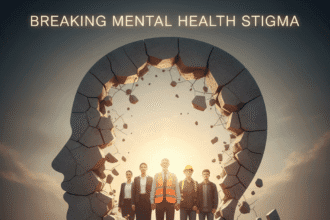According to the National Council for Mental Wellbeing, at least 70% of adults – 223.4 million people – in the U.S. have experienced some type of traumatic event at least once in their lives. But trauma is not a monolith – despite the many different types of trauma, the internal experience of what trauma feels like also varies for each individual. This article will mainly look into vicarious trauma, a form of trauma that is particularly common among professionals whose works revolve around caring for others.
In these fields, you take on the stress, experiences, or even trauma of those that you are helping, and like any other trauma type, vicarious trauma can be very debilitating. For example, if you are a registered nurse, you may have a higher risk of vicarious trauma due to being constantly exposed to chronic stressors and traumatic patient experiences, and if you think you might be struggling with it, you can look at how to become a nurse consultant which can allow you to remain in your field while helping patients in a different capacity.
Now, let’s look at what exactly vicarious trauma is, its causes, and common signs and symptoms in more detail, which you can use before seeking for proper diagnosis from a mental health professional.
Vicarious trauma: What is it?
Vicarious trauma is a form of trauma characterized as a response to repeated exposure to preceding traumatic events that others experience. It is a common occupational challenge that workers in fields such as healthcare, law enforcement, emergency medical services, fire services, or any other caretaking or allied professionals often face. There are also numerous other names used to refer to this type of trauma, including ‘secondary traumatization,’ ‘secondary trauma,’ ‘secondhand trauma,’ ‘secondary traumatic stress,’ or ‘compassion fatigue.’
Often, vicarious trauma is confused with post-traumatic stress disorder (PTSD) due to overlapping symptoms, but they are not the same. A good way to draw the differences between the two is to know that PTSD is when someone experiences or witnesses trauma directly, while vicarious trauma – as per its name – occurs when engaging with someone who has experienced trauma. However, this does not mean that vicarious trauma is less problematic – in fact, it can be as equally debilitating as other trauma forms, such as PTSD.
What causes it?
As mentioned before, vicarious trauma is a key occupational challenge for those in fields that require them to be exposed to and engage with trauma victims regularly. Vicarious trauma, therefore, develops as a response to these repeated exposures, and these can be witnessing, listening, or even just acting as a supporter for others through their own traumas. Generally, anyone can develop vicarious trauma; however, those with trauma histories display higher instances of it than those who do not.
For example, vicarious trauma was a major part of frontline healthcare workers during the COVID-19 pandemic between 2020-2022. It should be noted that experiencing vicarious trauma is not a sign of weakness. Rather, it is the natural response the mind has when empathizing with those around us who have experienced pain and suffering themselves or witnessed it in others. There are a variety of ways vicarious trauma can manifest, including physically, emotionally, and behaviorally, and this can be different for each individual.
Signs and Symptoms of Trauma
To know whether you or another person may be dealing with vicarious trauma can vary greatly. However, the following are the most common signs and symptoms of vicarious trauma;
Emotional and physical exhaustion
Having continuous exposure to trauma survivors can be a very exhausting experience. From feeling emotionally drained to physical ailments such as aches, these can be some common effects of vicarious trauma.
Sleep problems and nightmares
In contrast to exhaustion, the anxiety caused by vicarious trauma can lead to difficulties sleeping and nightmares. They are very prevalent results of dealing with traumatic events.
Burnout and relationship problems
Being a primarily occupational disorder, vicarious trauma may also start blurring the lines between one’s personal and professional lives, leading to the possibility of burnout. Moreover, this can lead to the feeling of a need to withdraw from others, which can negatively affect the relationships one has with friends and family.
Difficulty managing emotions
Anger, rage, or sadness are some strong emotional responses one can have in terms of what the trauma survivor has experienced. But, often with vicarious trauma, they can become dysregulated. For example, having regular violent or angry outbursts is a clear sign of emotional dysregulation associated with trauma.
Self-destructive behavior
Gambling, drugs, and alcoholism are usually what we think of when talking about self-destructive behavior. They are commonly used as a coping mechanism for trauma.
Intrusive thoughts
Having constant unwanted mental images or thoughts of or related to another person’s traumatic experiences is very clearly a sign of secondhand/vicarious trauma.
Many of these symptoms can be crippling and significantly affect one’s capacity to effectively provide care to others.
Strategies to cope
There are many different strategies you can use to cope with vicarious trauma. These can include:
- Taking care of yourself emotionally through things such as mindfulness.
- Seeking support from friends, families, and even colleagues.
- Maintain a proper work-life balance through having hobbies or any other leisurely interests.
- Limit exposure to traumatic media, such as through reducing caseloads or mixing more and less traumatized clients, victims, and non-victims.
- Take care of your physical well-being through regular exercise and a healthy sleep schedule.
Ultimately, if you feel like you are experiencing vicarious trauma, you should first contact your nearest mental health professional. There are also additional resources you can consult, such as the Vicarious Traumatic Toolkit and the Trauma Research Foundation.










